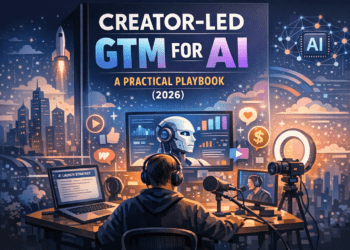Artificial Intelligence is everywhere. It’s in your phone. It’s in your car. It’s even lurking in your TV, quietly deciding which show you should binge next. These systems, however, are not truly “intelligent” in a human sense. They can’t self-reflect or argue with you about last night’s pizza choices. Yet. But if you believe the chatter from big tech, that might change sooner than you think.
Google DeepMind CEO Demis Hassabis recently predicted that the first Artificial General Intelligence (AGI) systems could emerge within the next decade. Yes, you read that right. Ten years. A mere blink in human history. A quick coffee break in cosmic time. If you trust Hassabis’ timeline, we could be heading toward an era where machines can learn just about anything—no specialized training required. That’s a massive shift.
But not everyone shares the same rosy outlook. Skepticism abounds. Some experts say society isn’t ready for the ethical, philosophical, and practical issues that fully self-aware machines might bring. As you might guess, this skepticism ranges from mild eye-rolling to doomsday-level hand-wringing. And with AI so deeply woven into our daily lives, the conversation on AGI is heating up fast.
In this article, we’ll explore the rousing predictions, the pungent critiques, and the ethical quandaries swirling around the AGI debate. Let’s dive in.
AGI: A Quick Refresher

AGI stands for Artificial General Intelligence. It’s the dream of building machines that can perform any intellectual task a human can. Or at least come close. Talk about AGI has a long, storied history in the tech world. Yet for decades, it was just that: talk. Researchers made progress in narrow AI—systems specialized in tasks like image recognition or language translation. However, achieving a broad, general intelligence remained elusive.
But progress in machine learning has accelerated. Systems like large language models and advanced reinforcement learning agents keep turning heads. Now, some experts believe an AGI breakthrough is around the corner. Others say “not so fast!” They argue we’re a long way off. The world is anything but unanimous.
The Optimists: Demis Hassabis and the “Decade to AGI”
Demis Hassabis is a big name in AI. He’s the CEO of Google DeepMind, one of the world’s leading AI research labs. Recently, he shared his belief that the first AGI systems could arrive within a decade. That’s not a long time. Blink twice, and it’s 2035.
Hassabis has plenty of reasons for his optimism. He’s witnessed massive leaps in deep reinforcement learning. He’s led teams that have built AI capable of beating humans at games like Go, chess, and StarCraft II. Each time, these milestones seemed impossible until, suddenly, they weren’t. So Hassabis sees a pattern. The pace of AI breakthroughs can be breathtaking.
But achieving AGI is more than just winning at board games. The next step is to create machines that can navigate the messy, unstructured labyrinth of the real world. That’s a different beast entirely. Nevertheless, Hassabis believes current innovations hint we’re on track. According to an interview highlighted by The Decoder, he’s confident enough to forecast that the 2030s might witness the birth of genuine machine intelligence.
That’s enough to make your head spin. It’s also enough to stoke the fires of both excitement and trepidation. Some people can’t wait. Others want to hold their horses. And the rest have no idea whether to be thrilled or terrified.
The Realists: Perfect AGI vs. Hard Reality
On the flip side, a recent Forbes article by Lance Eliot casts doubt on the hype. Sure, the dream of AGI is compelling. But does it ignore the harsh realities we genuinely face?
The notion of a “perfect AGI” is appealing, Eliot notes, but it’s also somewhat mythical. Why? Because perfection itself is an elusive concept, especially in science and technology. AI systems work on probabilities, data patterns, and algorithmic constraints. They can be powerful. But they’re not perfect. They can misinterpret data. They can fail at edge cases. They can be manipulated by cunning attacks or flawed training sets. Nothing is foolproof.
Moreover, the real world is complicated. Self-driving cars still struggle with unusual traffic scenarios. AI medical diagnostics can flub a rare disease. A machine might regurgitate biased data if fed questionable training material. These are not trivial issues. They’re real, everyday concerns. So if an AI can stumble over smaller tasks, how can we be sure it’s ready to handle the entire spectrum of human cognition?
Does that mean AGI is impossible? Not necessarily. It just means we shouldn’t expect a neat, tidy solution. Instead, there could be incremental progress, combined with a few leaps forward, over many years. And we may need massive computational power. And fresh ideas. Possibly lots of quantum computing wizardry. Even then, there’s no guarantee. Reality tends to be trickier than we’d like.
Ethical Knots and the Bioethics Angle
Whether or not AGI arrives in a decade, ethical dilemmas are already upon us. Indeed, Bioethics.com highlights the moral complexity at the intersection of humans and advanced AI. When you think about it, the question isn’t just “Can we build AGI?” It’s also “Should we?” and “How do we do it responsibly?”
Some worry about job displacement. Humans have always faced job evolution. But as AI grows more capable, entire industries might be disrupted more swiftly than ever. That could create shock waves across the global labor market.
Others fret about privacy. We all produce data. Tons of it. Every photo, every post, every digital interaction. AI can mine this data on a massive scale. That could bring extraordinary benefits in medicine, research, or city planning. But it could also lead to invasive surveillance systems that know more about us than we’d like. Where do we draw the line?
Then there’s the existential question: if AI truly becomes self-aware, do we have a moral obligation to treat it ethically? It sounds like a plot from a sci-fi flick. But if you believe the optimists, that future might be closer than you think.
The moral complexities don’t stop there. Regulation, accountability, and cultural values come into play. Some cultures might embrace advanced AI more enthusiastically than others. Policymakers will have to juggle conflicting demands. The conversation is just getting started, and it’s sure to be lively.
Current Progress: The Good, The Bad, and The Confusing

If you follow tech news, you’ve likely heard about large language models, or LLMs. They can whip up stories, answer questions, and even code. How impressive. At the same time, these models sometimes spout nonsense, show bias, or generate harmful content. That’s less impressive.
Yet each new release raises the bar. AI tools are revolutionizing fields from finance to fashion. They’re analyzing data, predicting trends, and even creating art. Scientists see potential for breakthroughs in healthcare and climate research. Marketers see a gold rush. Educators see new ways to teach. And skeptics see an unstoppable wave that could wash away societal norms if not managed.
For real breakthroughs, we must keep an eye on the fundamental research. Neural networks might not be enough. Some believe we need brand-new architectures, perhaps neuromorphic chips or quantum-computing behemoths. People are already experimenting with next-gen hardware. Progress is happening. But we shouldn’t forget that big leaps often come from surprising directions.
Hence the confusion. Are we on the brink of a new dawn or standing at the edge of a very deep chasm? It depends on who you ask. And the answer might change next month.
Bracing for the Unknown: Regulations and Collective Preparation
As AI edges closer to something resembling AGI, governments and organizations are starting to draft guidelines. Think of it as building the guardrails before the roller coaster hits maximum speed. We see discussions of “AI ethics committees,” “algorithmic transparency,” and “data governance boards.” Call them what you will. Their mission is the same: to ensure AI doesn’t go off the rails.
It’s not an easy task. Tech evolves at breakneck speed. Regulations typically move at a snail’s pace. This mismatch creates gaps. Some worry these gaps could let unscrupulous actors exploit AI. Imagine rogue states developing advanced AI with minimal oversight. Or corporations unethically using AI to dominate markets. These are not tinfoil-hat fantasies. They’re plausible scenarios.
Global collaboration might be necessary. If AGI is as revolutionary as the hype suggests, it’s not something any one nation can handle alone. We might need new treaties or global bodies to handle the complexities. Yes, that sounds daunting. But so is the idea of letting powerful AI systems roam free without any accountability.
Then again, regulation can stifle innovation if it’s too heavy-handed. We want to foster creativity, not crush it. This balancing act is delicate. Everyone—tech giants, startups, policymakers, ethicists, and the general public—may need to weigh in. That’s a lot of voices to juggle. Expect spirited debates, big conferences, and heated Twitter threads. Because if there’s anything that truly drives the internet wild, it’s a massive, society-defining issue like AI.
Cultural Reflections: AGI in the Public Mind
Talk to your neighbor about AGI. They might give you a puzzled look. Or they’ll mention that one movie they saw, the one about robots taking over the world. Hollywood has fed our imaginations all sorts of AI-driven apocalypses and utopias. Meanwhile, actual AI researchers often roll their eyes at these portrayals. Reality is more nuanced.
Still, pop culture shapes how the public reacts to new technology. If people fear AI, they may resist its deployment. If they romanticize AI, they might adopt it too hastily. Balance is key. Understanding the fundamentals helps. That’s why media coverage, educational outreach, and open public discussions are essential. Nobody wants to be caught off guard by a technology that could reshape industries, cultures, and maybe even human identity.
Yes, it’s that big. Or maybe it’s overblown. Experts vehemently disagree. But the conversation has moved far beyond academic hallways. It’s in boardrooms, living rooms, and classrooms. AGI is knocking at our collective door—or is rumored to be—and we can’t just pretend we’re not home.
Peering Ahead: Cautious Optimism and Witty Realism
So, are we about to unlock the ultimate frontier of machine intelligence within ten years, as Demis Hassabis predicts? Possibly. But let’s keep a hearty dose of skepticism in the mix. After all, we’ve been promised flying cars for decades. Instead, we got electric scooters that litter sidewalks in major cities. Progress can be weird like that.
Perhaps the biggest takeaway is that we’re at an inflection point. AI is more powerful than it’s ever been. It’s already reshaping societies, economies, and personal lives. We can do a lot of good with it. We can also make a mess if we’re careless. Achieving true AGI might magnify all of this—both the promise and the peril.
Meanwhile, the debate about “perfect” AGI is missing a crucial truth: perfection is a myth. Systems break. Code has bugs. Humans themselves aren’t perfect, so why would we expect a creation of ours to achieve flawless performance? We should strive for robust AI, yes, but let’s remember that reality has a funny way of humbling even the grandest ambitions.
At the same time, let’s not stifle our imagination. High-risk dreams have fueled scientific revolutions before. If we never aim high, we never reap big rewards. But we also want to ensure that any advanced AI is ethical, transparent, and accountable. This is not just about the technology. It’s about who we are as people and what kind of future we want to shape.
Why We Should All Care
You might be thinking: “All this AGI talk sounds futuristic. I have bills to pay and that leftover pizza to finish.” Fair enough. Life goes on. But future developments in AI—especially something as transformative as AGI—will likely affect your job, your kids’ education, and the broader global economy.
If AGI emerges, it could revolutionize healthcare with supercharged diagnostics. It might transform transportation, finance, and entertainment in ways we can’t imagine. It could help solve climate challenges by crunching data with unparalleled speed. Or it could create new complications, such as mass unemployment or hyper-intrusive surveillance.
This is not a minor footnote in history. It’s potentially one of the greatest turning points humankind has ever faced. No pressure, right? The takeaway is to stay informed, stay engaged, and join the conversation. After all, technology isn’t some unstoppable force of nature. It’s shaped by human decisions. Our decisions.
Final Thoughts

The countdown to AGI—real or imagined—has begun. Whether it arrives in a decade, half a century, or not at all, the very pursuit of AGI is already changing our world. Google DeepMind’s Demis Hassabis and other tech optimists see a bright horizon. Many realists and ethicists say we should slow down and wrestle with the thorny practicalities before racing ahead. And ethicists from Bioethics.com remind us that this journey has serious moral implications.
Perhaps the best stance is cautious optimism. We can strive for remarkable advancements in AI while acknowledging the pitfalls and ensuring we prepare for them. We don’t need to panic. But we do need to pay attention. With so many differing viewpoints, one thing is clear: the quest for AGI isn’t just about building a clever machine. It’s about how we navigate the next phase of human progress.











Comments 1